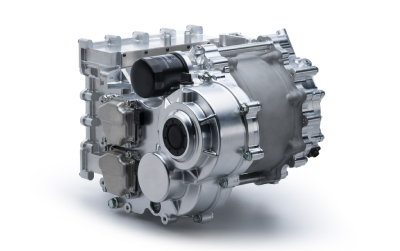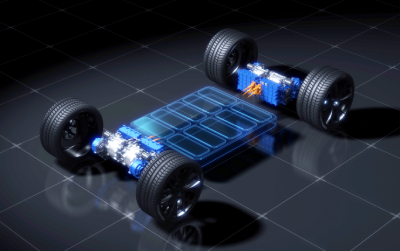December 9, 2021
IWATA, Japan—For those who believe Toyota, the largest car company in the world after overtaking General Motors in 2009, is falling behind the EV game; think again.
But wait? What does Toyota have to do with Yamaha? Toyota owns 40% of Yamaha and Yamaha has developed the engines for some of Toyota’s most iconic cars from the 1966 Toyota 2000 GT to the V10 engine of the Lexus LFA.
Yamaha Motors is set to produce its new oil-cooled electric motor combined with inverter and reduction gearbox with industry-leading power density. This new innovative design will give each motor a 350 kW (469 HP) electric drivetrain.
While Tesla, GM, Ford, and VW developed the components of their drivetrain separately, Yamaha integrated the mechanical and electrical components into one unit. The motor, gearbox, and electronic speed controller are all housed in the same assembly, reports Electrek.
What does that mean? Well, the most powerful Tesla has 1,020 HP—the Tesla Model S Plaid. The Plaid S has three 340 HP EV motors.
Yamaha envisions three of their motors in a future Supra or a Lexus EV LFA of some sort in the near future with a whopping 1,408 HP (1,050 kW) hypercar, which puts it in Bugatti Chiron territory.

Yamaha also envisions a four-motor setup with a total output of 1,400 kW (1,877 HP).
Toyota currently leads the solid-state battery race with over 1,000 patents and has already chosen their North Carolina Greensboro-Randolph factory for mass battery production. Toyota states the factory will manufacture enough battery packs for 1.2 million electrified vehicles per year, according to Toyota Newsroom.
All this while General Motors and Ford betray their people once again and move EV production to Mexico, according to Detroit Free Press. Chrysler/Dodge/Jeep doesn’t count, they’re owned by Europe’s Stellantis now.
Instead of putting all their eggs in one basket with EV, Toyota intends to dominate all fields from hydrogen, other alternative fuel sources currently being researched with Mazda, Subaru, Yamaha, and Kawasaki as well as EV.
Tesla’s greatest weakness is its reliance on Japanese firms like Fuji Technica and Miyazu who developed its electrical systems, chassis, and frame, and Panasonic; who developed Tesla’s long-range lithium-ion batteries. Guess what? Panasonic is currently working with Toyota on solid-state batteries.
Feature Images via Yamaha & Carbuzz


